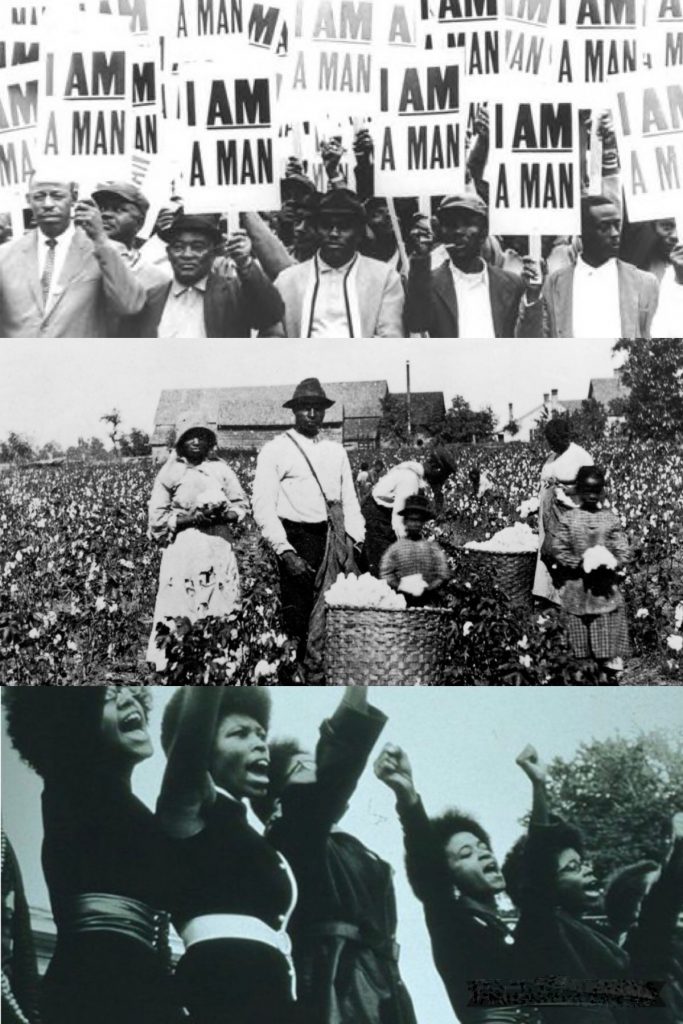by TAMURA LOMAX

W. E. B. Du Bois’s poignant words in The Souls of Black Folk (1903), “The problem of the twentieth century is the problem of the color-line,” is scripture for Black folk in America. Citizenry after three centuries-plus of bondage ain’t been no crystal staircase. Black folks have navigated feral and diabolical racialized hostility since European contact, invasion, occupation, conquest, and colonization. To be clear, the systemic violence of theft of bodies, culture, identities, and histories; foreign rule; forced African dispersal; the trans-Atlantic slave trade; and the European scramble for African territory, caused not only alienation between people, land, and culture, but laid claim to the spirit of African diasporic being, identity, independence, and thriving.
Today, when we think of the slave trade in America, many think of a system long gone that ended over a century and half ago. We think of what was, not what yet still is. We think of the magical Civil War that ended slavery and gave everyone shared access to the American Dream, not the reality that the same demonic colonial tools, political structure, and economic system that captured, enslaved, and traded an estimated 12 million Africans from Central and West Africa between the 15th and 19th centuries to be “slaves for life,” along with any offspring, still exists. Many of us are the offspring of Africans interpreted not as humans, but legal property aka cargo aka merchandise and sold to people who owned cocoa, cotton, coffee, tobacco, and sugar plantations. We are the descendants of domestics and field hands whose bylines, last names, diaries, testimonies, secrets, and seared flesh serve as reminders of our unique connection – to each other, land, experience, and the color-line. As Aimé Césaire reminds us in Discourse on Colonialism (1950), the dehumanizing, poisonous, and barbaric nature of coloniality, was distilled into the veins of our society. While we no longer live in a colonial context and “the official apparatus may have been removed…the political, economic, and cultural links established by colonial domination still remain.”
America is replete with colonial artifacts. Policing, mass incarceration, Black death, immigration laws, the juridical system, and the maintenance of socioeconomic class lines tell us this much. Neocoloniality is evidenced in and through a number of social hierarchies and forms of power and control intended to strip the Black diaspora of any semblance of freedom, justice, humanity, equity, or citizenship. And it means to stifle not only our liberation but our image. The collective battle for political freedom and from representational fabrication as darkness, evil, monsters, criminal, immoral, lazy, hyper-sexual, and so on, is real. The quest to be seen as ends rather than exploitable means to an end is real. And in the unyielding face of forced labor, joblessness, intimidation, police brutality, taxation, racial terror, theft, rape, incarceration, and murder, the 1960s signage and what came to represent the collective call of the social movement for humanity, “I Am A Man,” still rings true. In many ways, “I Am A Man” became a sublimation and lynchpin for naming Black oppression beneath the veil of the color-line.
The Feminist Wire for more
